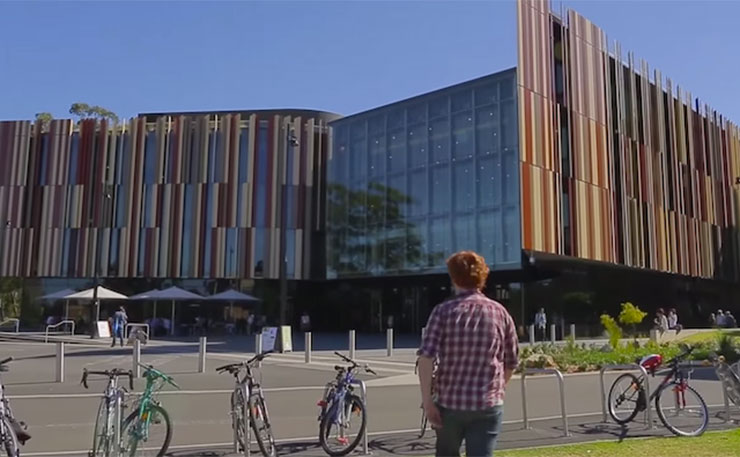A long-running battle between a student association and a major Australian university is set to reach its climax this week, as the fight to wind down the Macquarie University Postgraduate Representative Association (MUPRA) goes before the NSW Supreme Court, and new documents shed light on the University’s discreetly prepared case.
At stake is close to $600,000, the future of independent student representation on the campus and, according to some observers, the security of other student unions and associations across the country.
As the parties prepare for two days in Court later this week, documents filed as part of the case reveal a senior member of Macquarie University’s management has argued independent student organisations are not necessary, provoking those close to MUPRA to blast back, accusing the University of failing to genuinely consult with students over how it spends their money.
Affidavits filed with the Court by Macquarie University’s Deputy Vice-Chancellor (students and registrar) Deidre Anderson confirm the University wrote to the National Australia Bank in December 2013 requesting it put a freeze on MUPRA’s accounts.
Students involved with MUPRA were incensed by the move, which they argue hampered their efforts to fight the University’s legal challenge. In an earlier Court proceeding, NAB was compelled to release some of those funds to help them pay for their defence.
While attempting to close MUPRA, the University has set up its own organisation, as well as a Student Advisory Board.
“The University is of the view that the interests of postgraduate students are better represented by the University’s own initiatives and management as a result of the new student representative framework now in place,” Anderson’s affidavit said.
In a separate submission Anderson said that, in her experience and opinion, student organisations could not comply with the University’s rules unless they were “co-operative with the University”, “compliant with the University’s directions”, and “acting in the best interests of the University as a whole”.
Douglas Williamson, who became the President of MUPRA in 2014, said the University had curtailed the association’s activities by locking down its offices, denying access to campus events, barring access to the university’s email database (and thus contact with postgraduate students) and preventing it from putting up posters.
He also defended MUPRA’s history of financial accountability and said audited accounts had been published online, while stipends and payments to former presidents and staff had been properly documented and accounted for, which had been flagged by Anderson.
Testimony filed by Meghan Hopper, President of the Council of Australian Postgraduate Associations, depicts Macquarie University as an outlier among major universities for refusing to direct money levied from students towards independent, student-run bodies.
According to her affidavit, the University of Sydney provides just short of $6 million for such groups. At Monash it’s $4.7 million.
Macquarie’s total comes in at $0.
The Student Advisory Board set up by the University is predominately composed of elected students and consults with the University on how it spends the Student Services and Amenities Fee (SSAF) it collects from students.
The legislation that introduced the fee, seen as a watered down form of compulsory student unionism, mandates that universities consult with elected students over how they spend the money.
But in their testimony, students associated with MUPRA derided the Student Advisory Board.
Williamson quoted an independent review of the Board conducted in 2014 by Philip Pogson of strategic management firm The Leading Partnership.
“All other Australian University Student Unions, and most Student Unions across the Western world, are student run, student controlled and typically incorporated,” it said.
“The [Student Advisory Board] is advisory only and although its Charter bears some similarities to the constitution of an incorporated association or club, it has no formal governance status outside of the Macquarie University context.”
The report later stated: “It is fair to say, however, that in the view of almost all those consulted, the [Student Advisory Board] has at best only been moderately successful to date”.
Gemma Quinn, a student who has held positions on the Board as well as the University Council, said it had been “entirely ineffective as a vehicle to represent and deal with student concerns”, and that while it was informative it was not consultative.
Quinn said members of the Board were told meetings were confidential and that the University had only acted on advice from the Board in one occasion.
“All that is happening at these meetings is that a University employee is talking to a group of students about how particular student funds are being expended on terms that those student are precluded from sharing [with]other students,” her submission said.
In her own submission, Deputy Vice-Chancellor Anderson referred to a 2013 review undertaken by a representative of the Department of Education, which she said found “the University undertook extensive consultation with students and representatives in 2012 and 2013 regarding the expenditure of SSAF revenue”.
Anderson argued the Student Advisory Board, along with representation on the University Council and Senate, meant postgraduate students were adequately represented without MUPRA. Her evidence said many services previously handled by MUPRA had already been handed over to the University in 2005.
But the students and their backers are adamant the campus needs an independent organisation, already absent for undergraduates.
If MUPRA is closed down the campus will cease to host any major independent student organisation.
“Based on these comments and other public comments made by Ms Anderson throughout the course of this dispute it is my opinion that Ms Anderson, representing Macquarie University, has a predetermined ideological position on the role of independent student representation and student unionism that has hampered her ability to negotiate with the defendants in good faith,” Hopper’s affidavit said.
Phil Betts, who served as MUPRA President for close to four years, put the association’s case this way: “No individual or organisation that is beholden to or answers to the University can advocate fully and openly without fear of reprisal.”
Macquarie University was contacted for comment on Monday evening but was not able to respond by deadline. As a result, deadline for the story was extended. At the time of publication the University had still not responded to questions.
Donate To New Matilda
New Matilda is a small, independent media outlet. We survive through reader contributions, and never losing a lawsuit. If you got something from this article, giving something back helps us to continue speaking truth to power. Every little bit counts.




